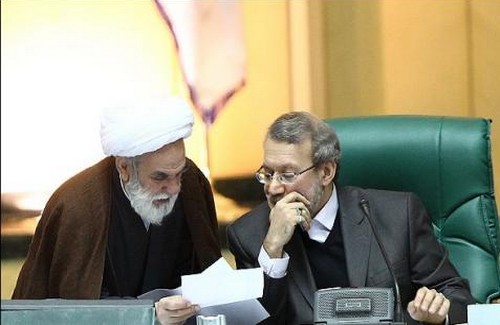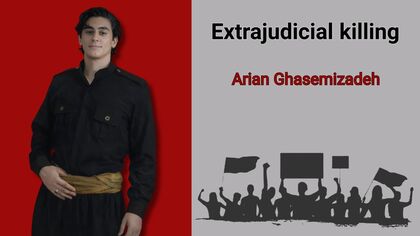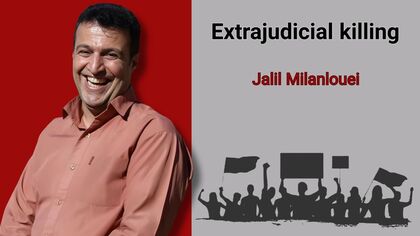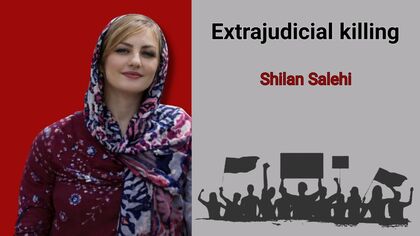Iran bans MPs from standing for re-election to parliament
13:46 - 12 January 2012

Kurdpa - Iran\'s interior ministry has blocked at least 33 MPs from running in parliamentary elections in March, adding to calls for a countrywide boycott.
At least 33 Iranian MPs were told on Tuesday that their candidacies had not been approved even though they currently serve in the parliament, local news agencies reported.
Many reformist MPs and even some conservatives are among those barred from running in the March vote, which the country\'s intelligence minister has described as \"the most sensitive elections\" since the 1979 Islamic revolution.
Ali Motahari, a conservative MP whose father, Ayatollah Morteza Motahari, was among the key founders of the Islamic republic, is among those on the blacklist. As an outspoken critic of the government\'s political and economic policies, Motahari was the driving force behind an impeachment motion against Ahmadinejad.
In October, Iranian MPs succeeded in securing enough signatures for a summons to question Ahmadinejad but the parliament\'s presiding board refused to issue it after an intervention from the country\'s supreme leader, Ayatollah Ali Khamenei.
In the events after the disputed presidential elections in 2009, when hundreds of protesters were arrested and many were killed, Motahari was critical of the regime\'s handling of the unrest although he remained adamant that the vote was not rigged.
According to the Iranian news website Khabaronline, the ministry cited two articles of the Iranian election law as reasons for its disapproval of Motahari\'s candidacy, including one requiring candidates \"to be loyal to the constitution and the leadership of the supreme leader\".
Motahari declined to give an interview to the Guardian on Tuesday because of restrictions on speaking to foreign press. Another Iranian MP said he was banned from speaking to the British press.
Hamidreza Katouzian, a Tehran MP and a conservative who supported the opposition candidate Mir Hossein Mousavi during the 2009 elections, is also among the candidates not approved by the ministry.
Speaking to the semi-official Ilna news agency, the Iranian MP Peyman Forouzesh said: \"The questions we asked from the president in the past are the reasons why we have been barred from running in next elections.\"
As Iran\'s first elections since the 2009 protests that challenged the legitimacy of the regime, the March parliamentary vote is of high significance for Tehran\'s leaders. Many opposition groups have already called for a widespread boycott.
The Fars news agency, which is close to the elite revolutionary guards, claimed that more than 1,200 reformists had put their names forward for the elections. Independent observers, however, questioned the veracity of the claims. Many believe that the regime has encouraged many of its own candidates to register as reformists in an attempt to undermine any boycott.
Last week, the regime launched a fresh crackdown on internet use, with new rules on cybercafes and preparations to launch a national internet. In a separate move, the ministry of culture and Islamic guidance closed down Iran\'s House of Cinema, an independent film centre with great influence among the country\'s film industry in a move seen as politically motivated.
Despite elections fears, the supreme leader on Monday predicted \"a massive turnout\" in March\'s \"healthy\" vote.
Source - The Guardian
At least 33 Iranian MPs were told on Tuesday that their candidacies had not been approved even though they currently serve in the parliament, local news agencies reported.
Many reformist MPs and even some conservatives are among those barred from running in the March vote, which the country\'s intelligence minister has described as \"the most sensitive elections\" since the 1979 Islamic revolution.
Ali Motahari, a conservative MP whose father, Ayatollah Morteza Motahari, was among the key founders of the Islamic republic, is among those on the blacklist. As an outspoken critic of the government\'s political and economic policies, Motahari was the driving force behind an impeachment motion against Ahmadinejad.
In October, Iranian MPs succeeded in securing enough signatures for a summons to question Ahmadinejad but the parliament\'s presiding board refused to issue it after an intervention from the country\'s supreme leader, Ayatollah Ali Khamenei.
In the events after the disputed presidential elections in 2009, when hundreds of protesters were arrested and many were killed, Motahari was critical of the regime\'s handling of the unrest although he remained adamant that the vote was not rigged.
According to the Iranian news website Khabaronline, the ministry cited two articles of the Iranian election law as reasons for its disapproval of Motahari\'s candidacy, including one requiring candidates \"to be loyal to the constitution and the leadership of the supreme leader\".
Motahari declined to give an interview to the Guardian on Tuesday because of restrictions on speaking to foreign press. Another Iranian MP said he was banned from speaking to the British press.
Hamidreza Katouzian, a Tehran MP and a conservative who supported the opposition candidate Mir Hossein Mousavi during the 2009 elections, is also among the candidates not approved by the ministry.
Speaking to the semi-official Ilna news agency, the Iranian MP Peyman Forouzesh said: \"The questions we asked from the president in the past are the reasons why we have been barred from running in next elections.\"
As Iran\'s first elections since the 2009 protests that challenged the legitimacy of the regime, the March parliamentary vote is of high significance for Tehran\'s leaders. Many opposition groups have already called for a widespread boycott.
The Fars news agency, which is close to the elite revolutionary guards, claimed that more than 1,200 reformists had put their names forward for the elections. Independent observers, however, questioned the veracity of the claims. Many believe that the regime has encouraged many of its own candidates to register as reformists in an attempt to undermine any boycott.
Last week, the regime launched a fresh crackdown on internet use, with new rules on cybercafes and preparations to launch a national internet. In a separate move, the ministry of culture and Islamic guidance closed down Iran\'s House of Cinema, an independent film centre with great influence among the country\'s film industry in a move seen as politically motivated.
Despite elections fears, the supreme leader on Monday predicted \"a massive turnout\" in March\'s \"healthy\" vote.
Source - The Guardian



